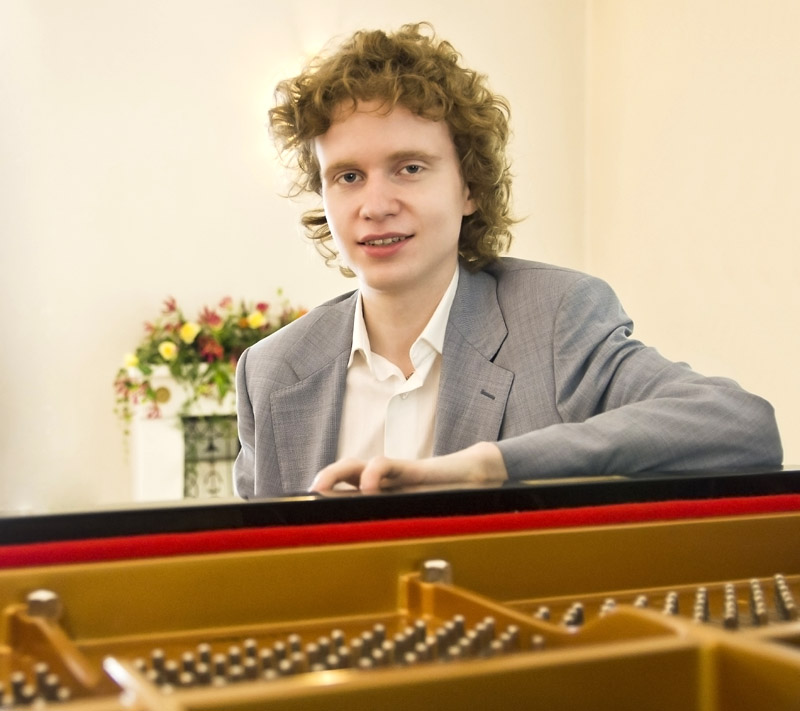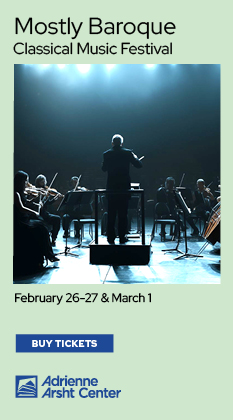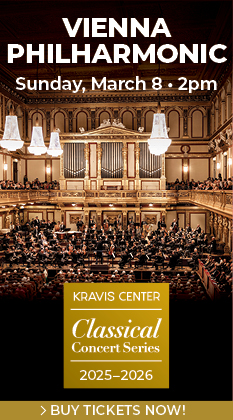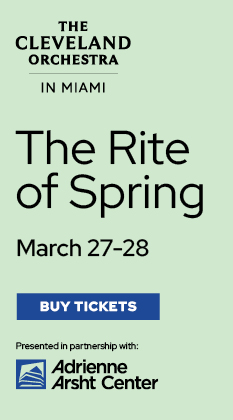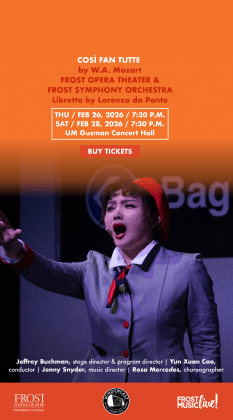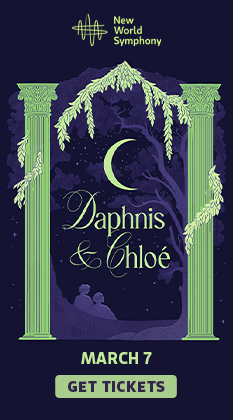20-year-old Russian to open Miami Piano Festival
The Miami International Piano Festival’s Discovery Series, running May 16–19 at the Colony Theater in Miami Beach, has a knack for bringing in distinctive, but relatively unknown talent. Impresaria Giselle Brodsky scours submissions, competitions, and the internet to find performers whom she considers special, often having unique interpretations of their repertoire.
In 2010, while working her way through the winners of the International Chopin Piano Competition, she came across the name of a then-18 year old Russian pianist, Nikolay Khozyainov.
“I saw that he was awarded a special prize, as one of the most promising talents in the competition,” recalls Brodsky. “So I went to the site and started to listen, and I just fell in love with him. Even though he was so young, whether he played Liszt, or Chopin, everything had something.
“He’s born with this gift, musicality that is so organic and so pure. He’s absolutely natural at the keyboard.”
Now 20, Khozyainov will kick off the festival’s Discovery Series next Thursday with a program of “Songs and Sonatas.” Coming straight off his April 30th Carnegie Hall debut, his Miami program nearly duplicates the Zankel Hall program, including one of Beethoven’s late sonatas, No. 31, Op. 110, the second of Prokofiev’s “War” Sonatas, No. 7 in B-flat, Op. 83, and Liszt’s massive Sonata in B minor.
It’s a hefty slate for the young man, whose strawberry-blond curls, cherubic face and lithe frame belie a profoundly serious artist. Khozyainov, whose interests also include conducting and opera, avoids television, the internet, and other distractions. Instead, he relaxes by reading orchestral scores, and poetry.
“To be able to create a piece of art on stage, a person must know a lot about art in general,” says the young Russian. “I read poetry all the time. Pushkin, Byron, Baudelaire, Lermontov, Dante and many others always accompany me. There is a big connection between composers and the poets of their time.”
His knowledge of the literature and art of the composers’ times may give Khozyainov an edge over many colleagues when it comes to historical interpretation.
Khozyainov also credits his conducting studies with deepening his understanding of the music. “It is impossible to perform Beethoven sonatas without knowing his symphonic music very well,” he says. “For example, there’s a huge connection between Beethoven’s late sonatas and late symphonies, and the Missa solemnis. The same with Liszt.”
But it is the Beethoven that contains a special message for the young pianist, especially the late Sonatas. Khozyainov asserts, “Beethoven was struggling with his destiny for his whole life, and maybe adjured to us not to give up in face of fate, but to find the power to go forward. The human must have the desire to win.”
Winning is something the young pianist is becoming increasingly familiar with, claiming the top prize at the Dublin International Piano Competition 2012. This led to a prizewinner’s debut concert in Dublin’s National Concert Hall on April 20th, his Carnegie Hall debut, and the present U.S. tour which will bring Khozyainov to Miami.
In 2010 when Brodsky discovered him, Khozyainov was also the youngest finalist at age 18 of the XVI International Chopin Piano Competition in Warsaw, Poland, and took second prize at the VI Moscow International Chopin Piano Competition for young pianists, plus a special prize “for the best performance of miniatures.”
He will treat Miami audiences to his interpretations of two works by Chopin: the Berceuse in D-flat, Op. 50, and the Barcarolle in F-sharp, Op. 60. The Barcarolle was not included on the Dublin or Carnegie Hall programs, but allows the pianist to scale back a bit from the larger works on the program and show a softer side, a contrast that he feels is important for the audience.
“After the deep and meaningful works which I usually present on my program, people want to hear something very familiar,” he says. Another work in this vein that he included in Dublin and New York is a well-known Liszt/Busoni overture transcription. “I often play Marriage of Figaro as an encore. I cannot say if I will play it in Miami, because I decide the encore piece when I sit down at the piano after the applause.”
Khozyainov came from a non-musical family, starting piano on his own at the age of five. At the age of seven, he began studies at Moscow’s Tchaikovsky Conservatory with Yury Lisichenko, and since 2005 has been a pupil of Mikhail Voskresensky, entering the Moscow Conservatory in 2010.
In addition to the accolades he has already garnered, he is currently a competitor in the Cliburn Competition, one of the most prestigious piano competitions in the world. At 20, Khozyainov will compete against pianists up to age 30, performing works from the Discovery Series concert in his upper rounds.
Although it takes great technical skill to win competitions, for Khozyainov, what matters most is interpretation and artistry. “When I play I never think of the technical, ‘finger’ side of the piece. Even works that may seem difficult technically, I don’t take as difficult.
“For concerts and competitions, I choose works that I feel are close to me, where I have something to say. When I play, I am sharing my feelings and thoughts with the audience, making contact with the people in the hall. I am trying to help the audience understand the piece I play, make them feel engaged during my concerts. Classical music makes people better, richer spiritually, and purifies the soul.”
When asked if he has a favorite piece, Khozyainov responds earnestly, as only a serious young man can: “The pieces which I play are always my favorites. I give to them all my soul, my heart, my energy, and my feelings. Only when I feel a close connection with the piece, only then I can perform the work for the audience. I am always happy when my performance evokes emotions in the listeners.”
Making interpretive decisions in the moment is one of the things that make Khozyainov such a fresh and interesting performer. “No matter whether I play the Beethoven sonata or Liszt sonata, or a smaller work, I always create the piece from the beginning, as if there was nothing before. Often on stage during performances, I find new shapes and facets of the work.”
Khozyainov adds that creating a work from the beginning doesn’t mean performance without preparation. “It is not improvisation, as the work is already composed, but rather the way in which it will be embodied that differs from performance to performance. That is the art of interpretation.
“Life goes forward. There is constant motion. All around me is changing, and I am also changing. The huge importance of spiritual development, literature, poetry, painting, all of it reflects on the artist’s art. It is the same with painters: there are no repeated paintings, because it is a creative process. It’s a process that’s going to take my whole life.”
The Miami International Piano Festival Discovery Series runs May 16 – 19, 2013 at the Colony Theater in Miami Beach. 305-674-1040; miamipianofest.com
Posted in Uncategorized
Leave a Comment
Thu May 9, 2013
at 5:00 pm
No Comments
